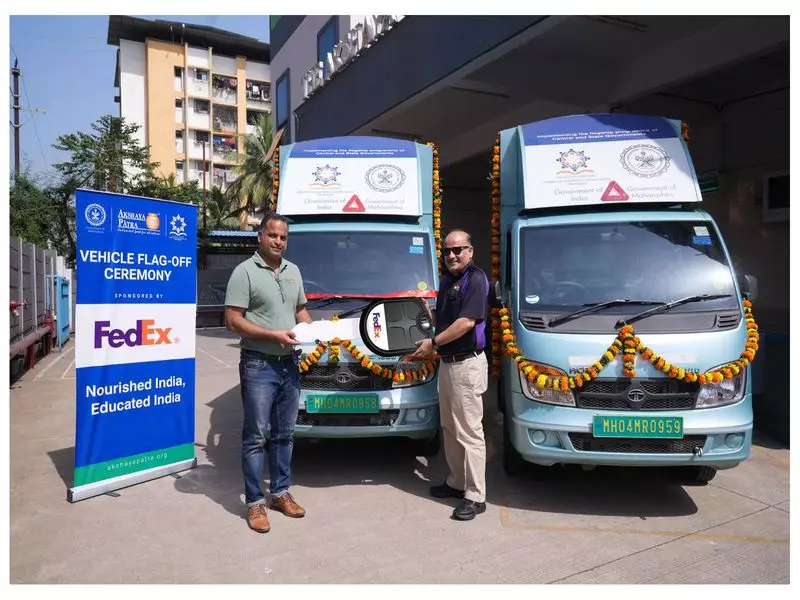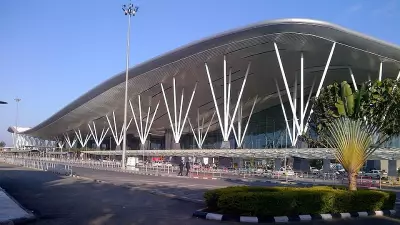
In a significant boost to India's education and nutrition landscape, global logistics giant FedEx has successfully facilitated the delivery of nearly one million mid-day meals to school children across the country. This massive undertaking forms part of the company's support for the Government of India's PM POSHAN scheme, demonstrating how corporate logistics expertise can drive meaningful social change.
Sustainable Logistics for National Nutrition
The initiative represents a landmark achievement in corporate social responsibility, with FedEx deploying its sophisticated delivery network to ensure that nutritious meals reach children in schools participating in the PM POSHAN program. The company managed the transportation of close to one million meals, leveraging its extensive experience in supply chain management to overcome the complex challenges of last-mile delivery in diverse geographical regions.
This collaboration between private enterprise and government initiative showcases how specialized logistics capabilities can be harnessed to address critical social needs. The PM POSHAN scheme, previously known as the Mid-Day Meal Scheme, represents one of the world's largest school feeding programs, aimed at improving nutritional status among school-age children while simultaneously encouraging school attendance and reducing dropout rates.
Environmental Responsibility in Action
FedEx emphasized that their delivery operations were conducted with a strong focus on sustainability, aligning with both corporate environmental goals and India's broader commitment to sustainable development. The company implemented eco-friendly practices throughout the delivery process, ensuring that their social contribution didn't come at the expense of environmental responsibility.
The nearly one million meal deliveries were executed using methods that minimized carbon footprint and environmental impact, setting a new standard for how logistics companies can contribute to social welfare programs while maintaining their sustainability commitments. This approach demonstrates that corporate participation in government schemes can be both effective and environmentally conscious.
Broader Impact on Education and Nutrition
Beyond the immediate benefit of providing meals, this initiative supports larger educational objectives. Regular mid-day meals have been shown to significantly improve school attendance, particularly among children from economically disadvantaged backgrounds. By ensuring reliable delivery of these meals, FedEx has contributed to creating a more stable learning environment where children can focus on their education without hunger distractions.
The success of this program highlights the potential for similar collaborations between corporate entities and government initiatives. The scale of nearly one million meals delivered demonstrates that private sector logistics expertise can be effectively leveraged to support national development goals, particularly in areas requiring sophisticated supply chain management.
This initiative also underscores the evolving role of corporations in addressing social challenges. Rather than traditional philanthropic approaches, companies like FedEx are increasingly using their core competencies – in this case, logistics and delivery expertise – to create sustainable social impact that aligns with their business strengths.
Future Implications and Expansion Potential
The successful completion of this large-scale delivery operation opens possibilities for similar collaborations in other sectors. The model demonstrated by FedEx could be replicated by other logistics companies to support various government welfare programs, from healthcare distribution to disaster relief operations.
The delivery of nearly one million meals serves as a proof of concept for how corporate resources can be mobilized to support public initiatives efficiently. This approach could potentially be scaled to reach even more beneficiaries across India's vast and diverse landscape, addressing multiple development challenges through strategic public-private partnerships.
As India continues to implement ambitious social welfare programs, the involvement of specialized private sector partners like FedEx could become increasingly crucial in ensuring these initiatives reach their intended beneficiaries effectively and efficiently. The success of this collaboration suggests a promising direction for future partnerships between government and industry in addressing the nation's development priorities.





